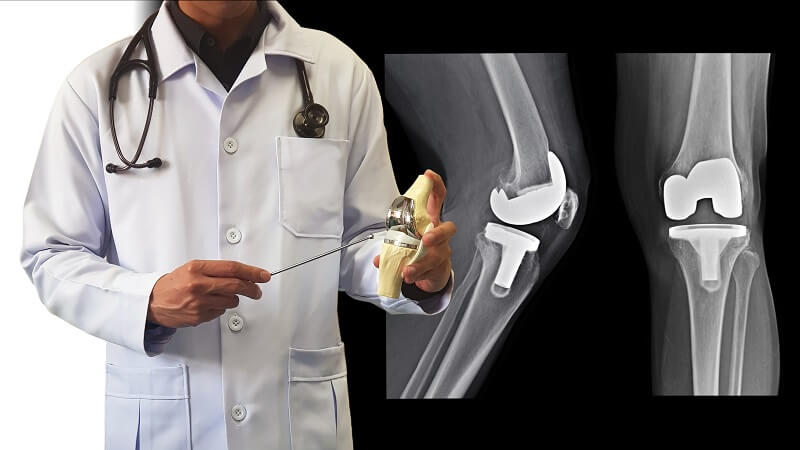SURGERY FOR ARTHRITIS

There may come a point in your life where your arthritis causes irreversible joint damage to the point where you develop deformities that cause extreme pain or loss of function. At that time, you may want to know if you have surgical options.
Know the indications
Most of the time, surgery will be indicated if you develop end stage structural damage in the joint. There may be a loss of cartilage, of the bony sufaces in the joint may erode. This will lead to “bone’on-bone” changes on x-rays, and noticeable deformities in the alignment of your joints. You may experience some combination of a loss in motion, strength, and function, and you may experience extreme pain. When medications and conservative measures fail, then surgical consultation is reasonable. In some cases, it may be helpful to see an orthopedist earlier—disuss with your rheumatologist or see the orthopedic surgeon whenever you want guidance and perspective.
Seeing an orthopedic surgeon
Your surgon is the only specialist that can perform surgery on your joints. You can set up an appointment to review your medical history, your symptoms, your physical limitations, and the extent of your joint damage. Your specialist will then provide you with treatment options.
Know your options
Your surgeon will present surgical options, but it would help if you have some understanding of what’s out there. Basically, your doctor may recommend a “clean up” procedure, joint realignment surgery, joint lining removal, joint replacement surgery, or joint fusion. Each body part, each joint, and each person have unique considerations, so listen carefully and ask questions until you feel have a good enough understanding of your situation. Your surgeon may advise you strongly or cautiously one way or the other, but you should always approach your decision-making with care.
Other Topics That Interest You


